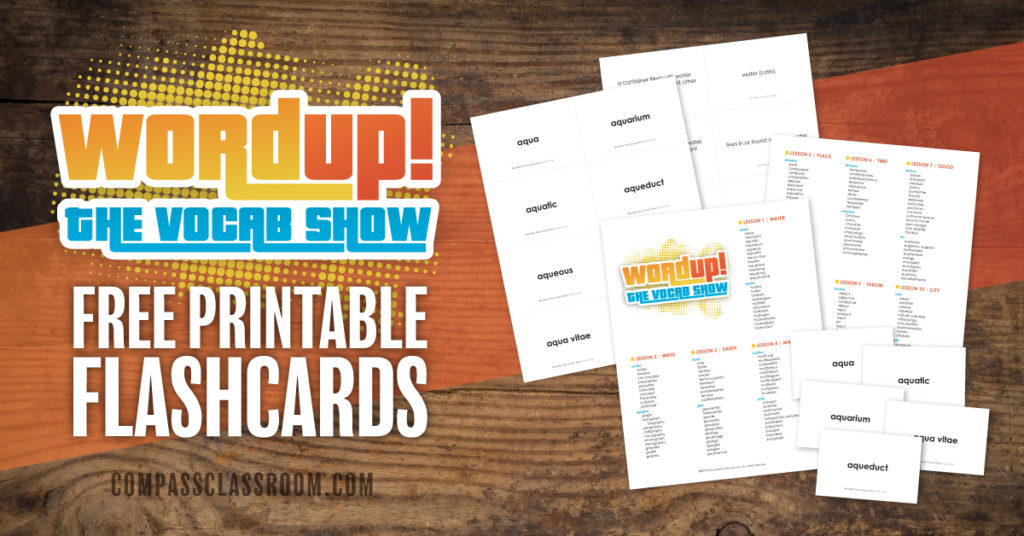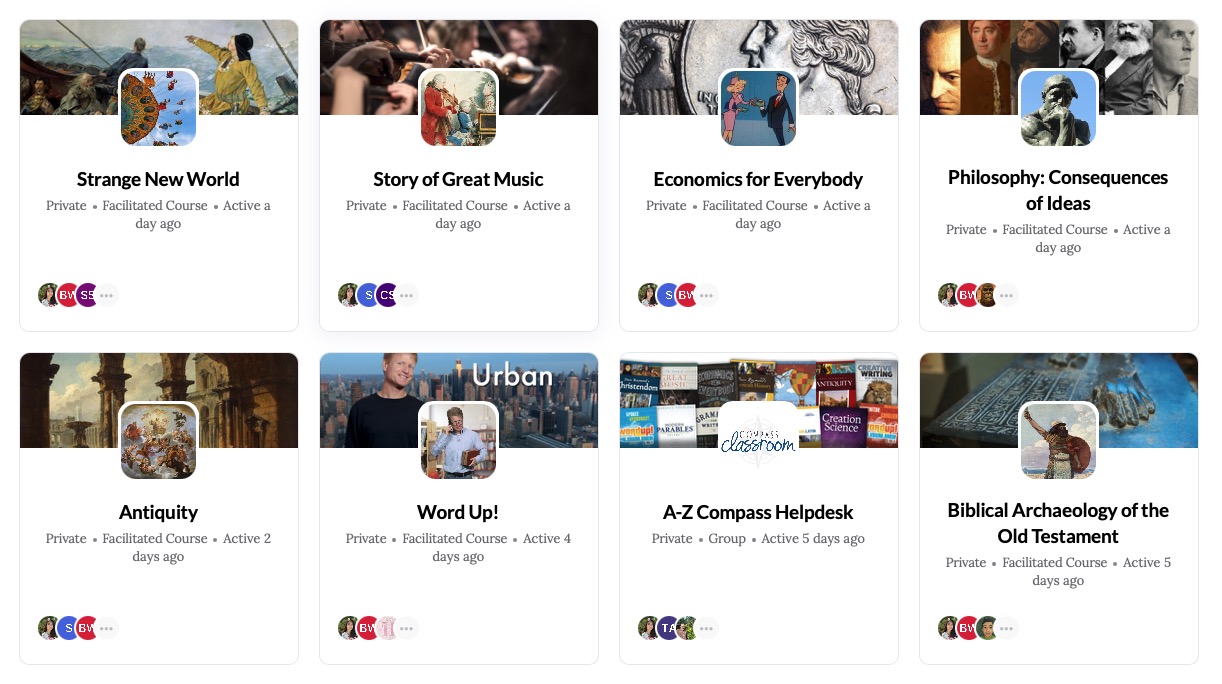
Share this post with another homeschool mom!
Word Up! The Vocab Show is undoubtedly the most fun and engaging approach to learning Latin and Greek roots out there, but if you’re already a Word Up! fan, you know that. I’m sharing 10 ways to make WordUp! stick. Learn how to teach this curriculum on our dedicated page.
Dwane Thomas brings his humor (okay—dad jokes) to each lesson, which prompted my 13-year-old son to remark, “This guy is like me with all the YouTube videos I try to make; you know, when I try to say something funny and realize it’s not.” Touché.
10 Ways to Make Word Up! Stick
I love the 10 lessons provided, but I wondered if there might be a way to make WordUp! stick in my students’ brains by appealing to the hands-on learner, the auditory learner, oral learner, and the visual learner alike. The best classrooms and educational environments incorporate activities that reach all learning styles, and you can, too.
Make your own videos
Taking a cue from my son, I realized that he could personalize each lesson if he dreamed up and created his own video version of each of the lessons. It’s a great project for a kid who likes to make videos, and it’s a sort of subversive reinforcement (that’s when a student doesn’t even know they’re reviewing the material).
Create Flipbooks
Small flipbooks are fun and easy to make. Create a booklet by layering sheets of colored or just plain white paper, staggering the layers so that a flipbook is created. If you need a helpful tutorial, take a look at this one flipbook tutorial.
Each tab (each sheet of paper) can represent each lesson of Word Up! so that you cover each word root as you go.
One of the best things about a project like a flipbook is that kids generally want to show other people their work, and so once again we have subversive reinforcement.
Create a Mind Map Graphic
Start by making two bubbles in the middle of a page, then write the Greek root of the week in one bubble and the Latin root in the other. Create more bubbles surrounding the center root word bubble and add the corresponding vocabulary words, one word per bubble. Draw lines that connect the words to the Greek and Latin roots. Kids who love organizing material will love this one, and it can be done on a whiteboard, poster paper, or a regular sheet of paper.
Fill in the Blank
Create a quick fill in the blank worksheet for students who learn by writing things down. It can be as straight-forward as a sentence per word, like this:
An ________________ is an elevated conduit for water, especially used in ancient Rome.
Hint: The words and their definitions are found in list-form at the bottom of the Word Up! Quizlet pages.
Toss a Ball
My extra-kinetic kids need to be up and moving, or information doesn’t seem to stick. Grab a hacky sack, small beanbag, mini Nerf football, or other small ball and pair your learners. Let them toss the ball back and forth as they quiz each other on the words and their definitions.
Bonus: Jumping on the trampoline is great for this, too!
Create a Word Search
Did you know there are websites that allow you to input your words and other parameters, and then create an instant word search game for you? Brilliant. Try this one from Discovery.
Create a Crossword Puzzle
Likewise, you can do the same and create a crossword puzzle instead. Crossword puzzles check several educational boxes, from logic and reasoning to spelling and vocabulary. Discovery also has a free crossword creator.
Use the WordUp! Quizlet Flash Cards
Find cards already set to go for each lesson of Word Up! Quizlet. There are several choices of cards submitted by contributors, or:

Print Compass Classroom Free WordUp! Flash Cards
Compass Classroom created a master list and full set of printable Flash Cards to help make Wordup! stick for you to use on the road, as a master review, or just for fun after each lesson.
Use the Quizlet Match Game
Be sure to use the built-in Quizlet match game. Competitive kids can see how they rate against previous players. My competitive son kept replaying it to beat his own personal best. See that sneaky subversive review?
I hope these great suggestions will help make Wordup! stick. If you haven’t tried WordUp! The Vocab Game Show yet, I highly recommend the course. It’s geared for upper elementary / middle school students.
Try a WordUp! Free Sample Lesson
Along with the videos, there are quizlet links for each Episode:
Episode 1 – Aqua
Episode 1 – Hydra
What are you waiting for? Let your children enjoy their time studying vocabulary!
Share this post with another homeschool mom!












